Bitter leaf (Vernonia amygdalina) is one of the medicinal shrubs common to Nigeria. It is also commonly found in other tropical African countries like Ghana, Cameroun and Togo.
Apart from being a medical plant, bitter leaf is also an edible vegetable used mostly to cook soup. While the bitter leaf plant is useful to man, it has a lot of antioxidants and therapeutic properties that are of importance to animals, especially poultry.
Have you ever heard someone mention the importance or usefulness of bitter leaves in poultry farming? Have you ever visited a poultry farm and seen bitter leaf extract or meal being added to the water or feed of the birds? This article will explain the importance and use of bitter leaf in poultry farming.
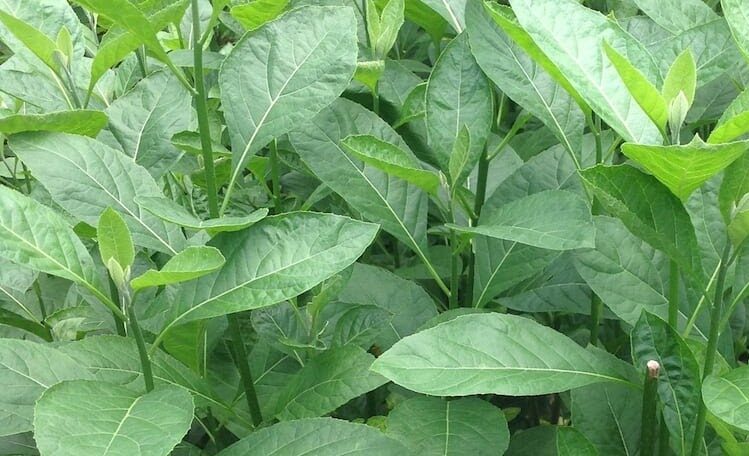
Use of Bitter Leaf in Poultry
1. To treat diarrhea and other bacterial diseases
Bitter leaf is a phytogenic plant used as an organic or herbal cure to bacterial diseases such as Escherichia coli (E. coli), Salmonellosis and some other gastrointestinal infections and disorders. Bitter leaf can also be used to prevent and treat staphylococcal infections in poultry birds such as Bumblefoot and Omphalitis.
2. To deworm birds
Bitter leaves contain bioactive compounds that are effective against endoparasites affecting chickens, especially intestinal worms. Hence, when there is intestinal worm infestation in chickens and other poultry birds, bitter leaf extract can be added to drinking water.
3. To treat coccidiosis
Coccidiosis is a deadly enteric disease of poultry. It is caused by the Eimeria species that invade the cells of the poultry intestine. It is characterized by watery and bloody feces, depression and poor weight gain. Bitter leaf is one of the common phytogenic plants used in the treatment of coccidiosis. Organic poultry farmers make use of bitter leaf extract to treat coccidiosis in their birds. It is safer, cheaper and more effective than inorganic anti-coccidial drugs.
4. To treat Newcastle disease
Newcastle disease, an acute viral disease, is capable of causing a drastic economic loss in poultry farming. No known treatment discovered so far for Newcastle disease by orthodox scientists and researchers. Though, antibiotics are often used to control secondary bacterial infections during Newcastle disease outbreaks. Bitter leaf is now used in organic poultry farms to control or treat Newcastle disease when there is an outbreak.
5. Serves as a phytogenic feed additive or growth promoter
Milled air-dried bitter leaves can be added to the diet of poultry birds to enhance their health status and growth performance of the birds. Broilers fed with diets that contain bitter leaves show better feed conversion ratios, improved growth performances, and better carcass weight and dressing percentage. So instead of using inorganic or synthetic growth boosters on poultry birds, the bitter leaf can do the job, even better for you.
How to Prepare Bitter Leaf Meal to be Mixed with Feed
As earlier mentioned, bitter leaves can be mixed with poultry feed as feed additives. It is not possible to mix fresh bitter leaves with feed. They must first be processed to bitter leaf meal before mixing with feed or further processed to bitter leaf juice.
- Harvest fresh mature leaves of the bitter leaf plant that are enough to meet the quantity of bitter leaf meal needed.
- Air-dry the leaves on an open concrete floor or iron mesh for 7 days. Don’t sun-dry to avoid losing or denaturing the bioactive compounds. Cool dry space with no direct sunlight is okay.
- Grind the air-dried leaves using a mortar and pestle or any mechanical grinder or crusher.
- Store the milled bitter leaf meal in an airtight container or sack placed on a pallet.
- Measure out the required quantity and thoroughly mix it with the feed using a mixing machine or hand mixing.
How to Prepare Bitter Leaf Aqueous Extract (Juice)
- Harvest fresh mature leaves of the bitter leaf plant that are enough to meet the volume of bitter leaf extract needed.
- Rinse the leaves in clean water and find a clean bowl to collect the juice.
- You can use the old ways of rubbing the leaves between your palms and adding a little amount of water. You can then squeeze the juice out of the leaves.
- The modern way is by putting all the leaves in a blender or juicer, adding a little amount of water and then starting the blender.
- After it is well blended, collect the puree in a strainer, sieve or cheesecloth and strain out the juice.
- Pour the bitter leaf extract into a bottle or container and keep it in a cool dry place or refrigerator.
How to Administer Bitter Leaf and Dosage
- Mix with poultry feed – Add 100 grams of bitter leaf meal (BLM) to 100kg of feed (or 1g of BLM to 1 kg of feed) and mix thoroughly.
- Add to drinking water: Add 50 ml of bitter leaf extract to 1 liter of drinking water and mix very well.
A serious organic poultry farmer must be a good friend to bitter leaf as there are many benefits or values to derive from this bitter but powerful plant. If used rightly, your birds will perform excellently.
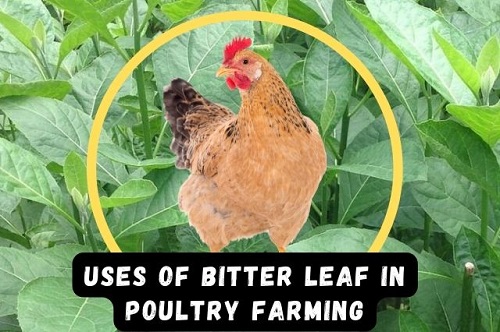
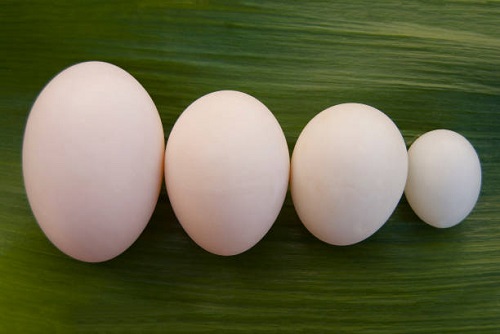
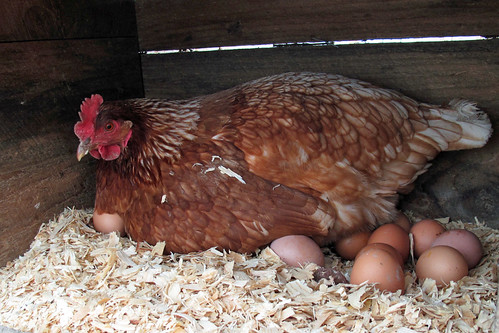
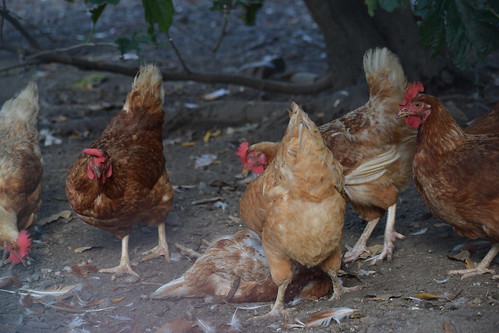
Thanks for the education please is it good to use Better leaf everyday for your broilers
Using it everyday doesn’t sound cool. Just administer for preventive or curative purposes.
Please bitterleaf be used for layers that are already laying.
Yes, it can.
H0W TO APPLY DOSAGE OF BITTER LEAVE TO 4000 POULTRY BIRDS.
Am not able to subscribe have try several times
Please try again
Thank you, the tips were helpful. But can I add bitter leave juice to 4 days old chicks. If yes what’s the ratio?
No, don’t do that.
Good job keep it up
Thank you for the insights about the bitter leaf. You said it cannot be given to 4 days old chicks but at what age should one start giving bitter leaf for growth promotion purposes., can one continuously add BLM in layers feed?
I’ll start giving them from day 7. Yes, it can be administered continuously.
An exllent outreach, thanks a lot. However, what is the quantity of BLJ for 20litres of water?
1 litre of BLJ
Thanks for the article.
thanks for this info. pls can I give my birds bitter leave 2days before vaccine?
Yes, you can.
Good job sir, please can I feed turkey with mixed milled bitter leaf and feeds everyday for better growth ?
Yes, you can.
Can aswell.one add bitter leaf to layer chickens after seven days to point of lay and even during laying continuously?
You cannot administer the bitter leaf continuously. Just give when necessary.
Sir,my birds gather together at night and day time and are active in the afternoon,and sneeze too
Please help me they’re just 2 weeks but they’re not dying
Nice job sir,
Pls each time l vaccinate my 2weeks old Birds with gumboro vaccine, it causes them mortality and stunted growth, should l stop?
Gumboro disease vaccination is important, but something could be responsible for the mortality and stunted growth other than the vaccine.
Good job sir, God bless you
Thanks